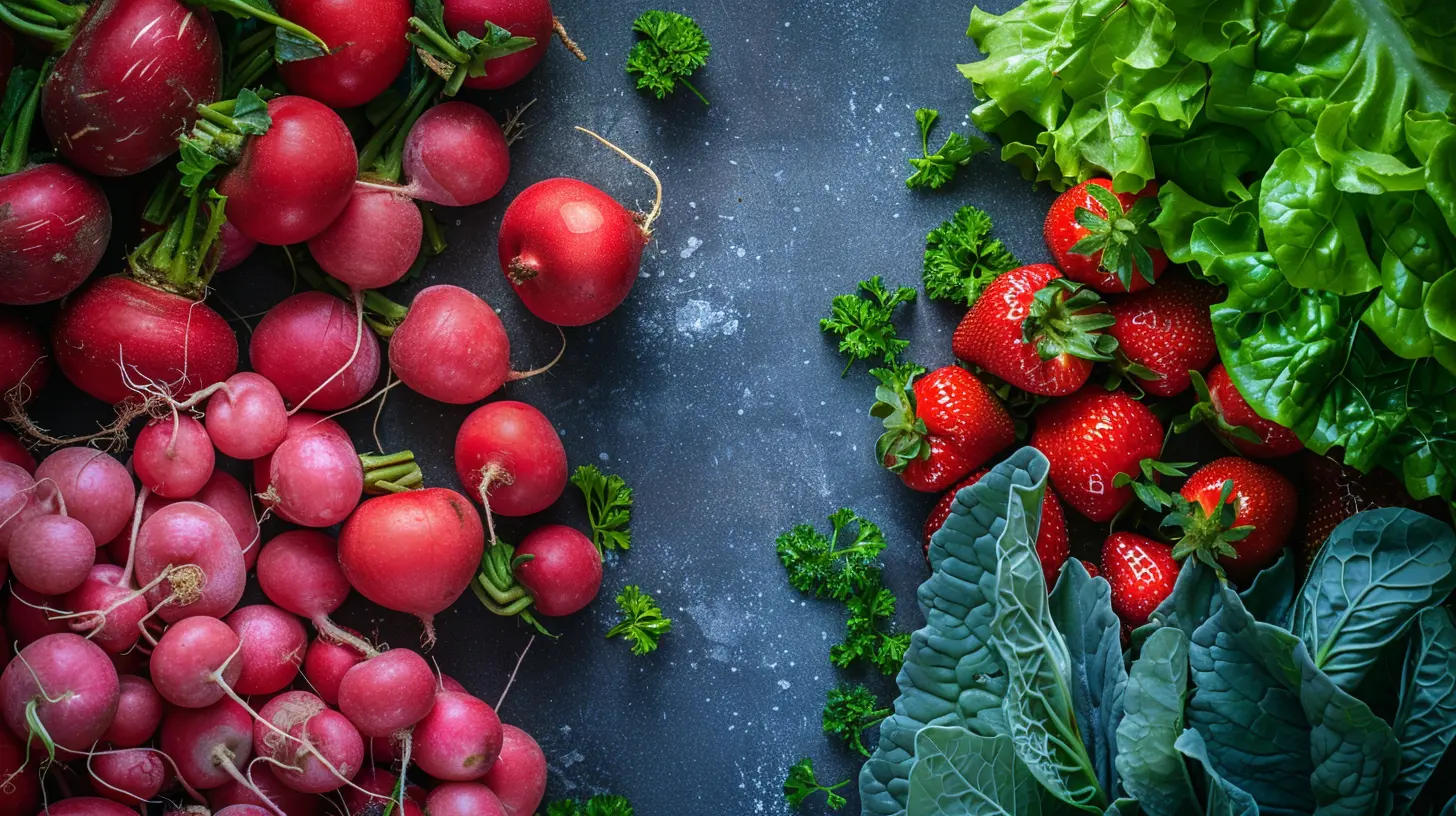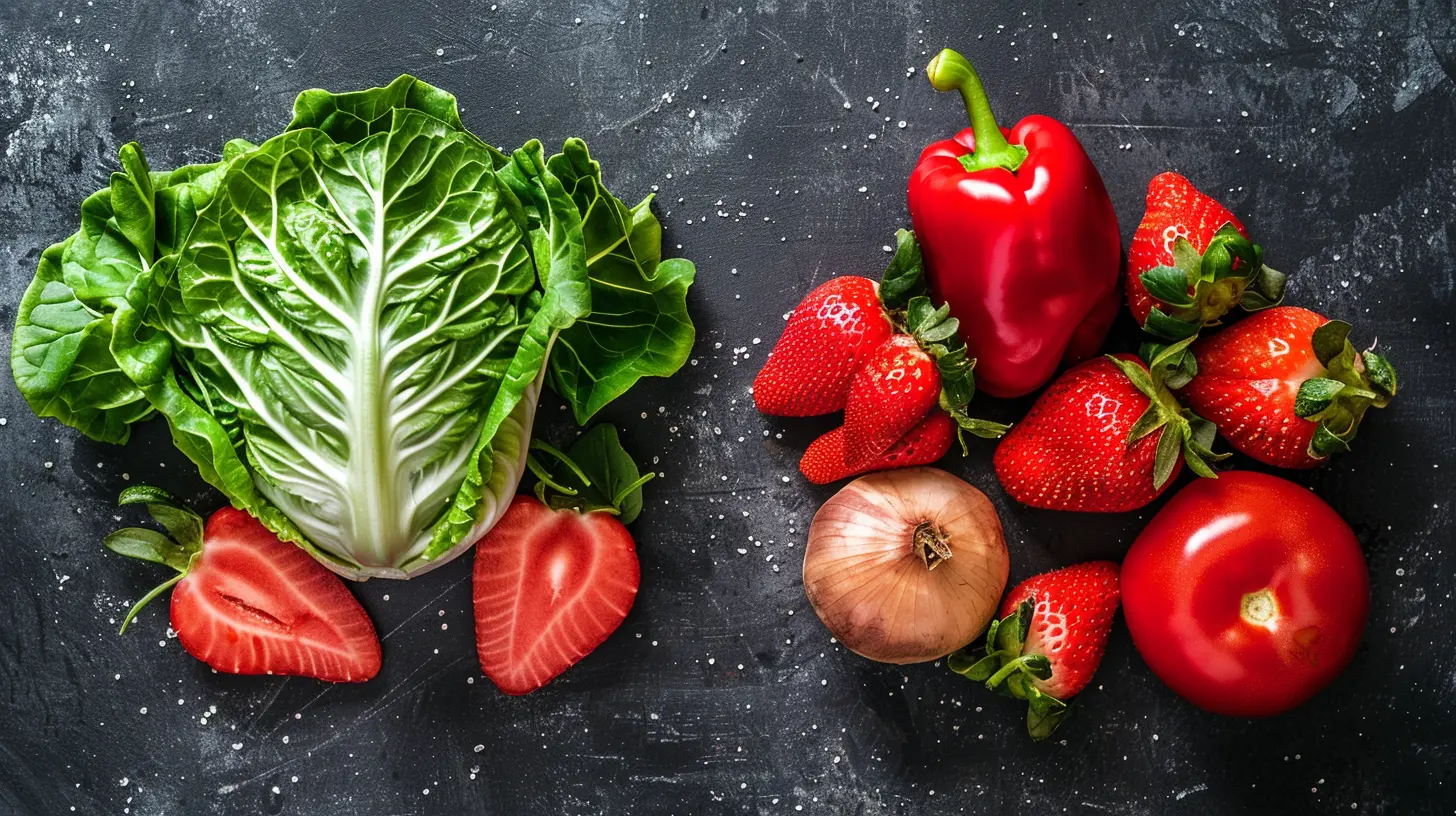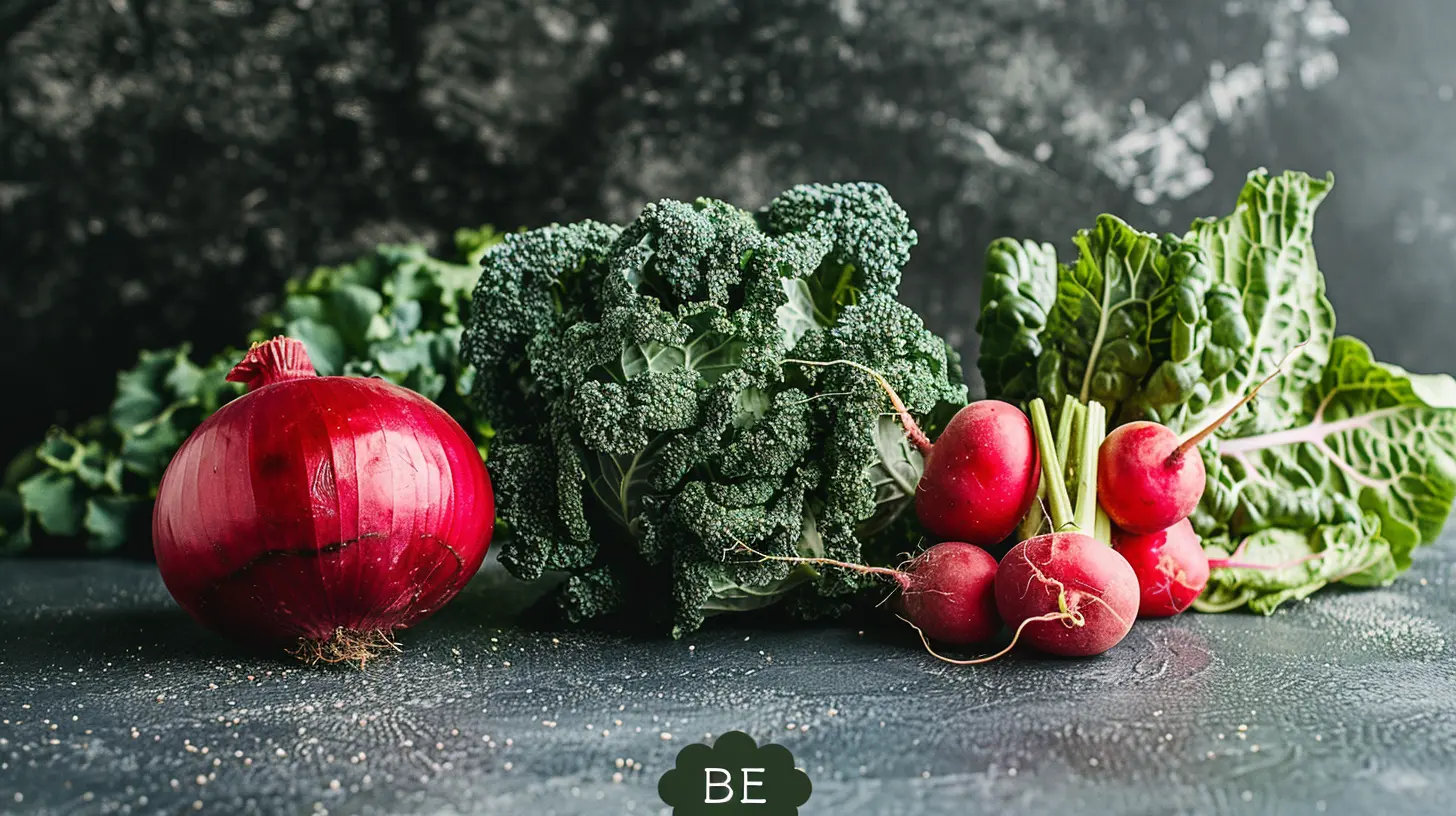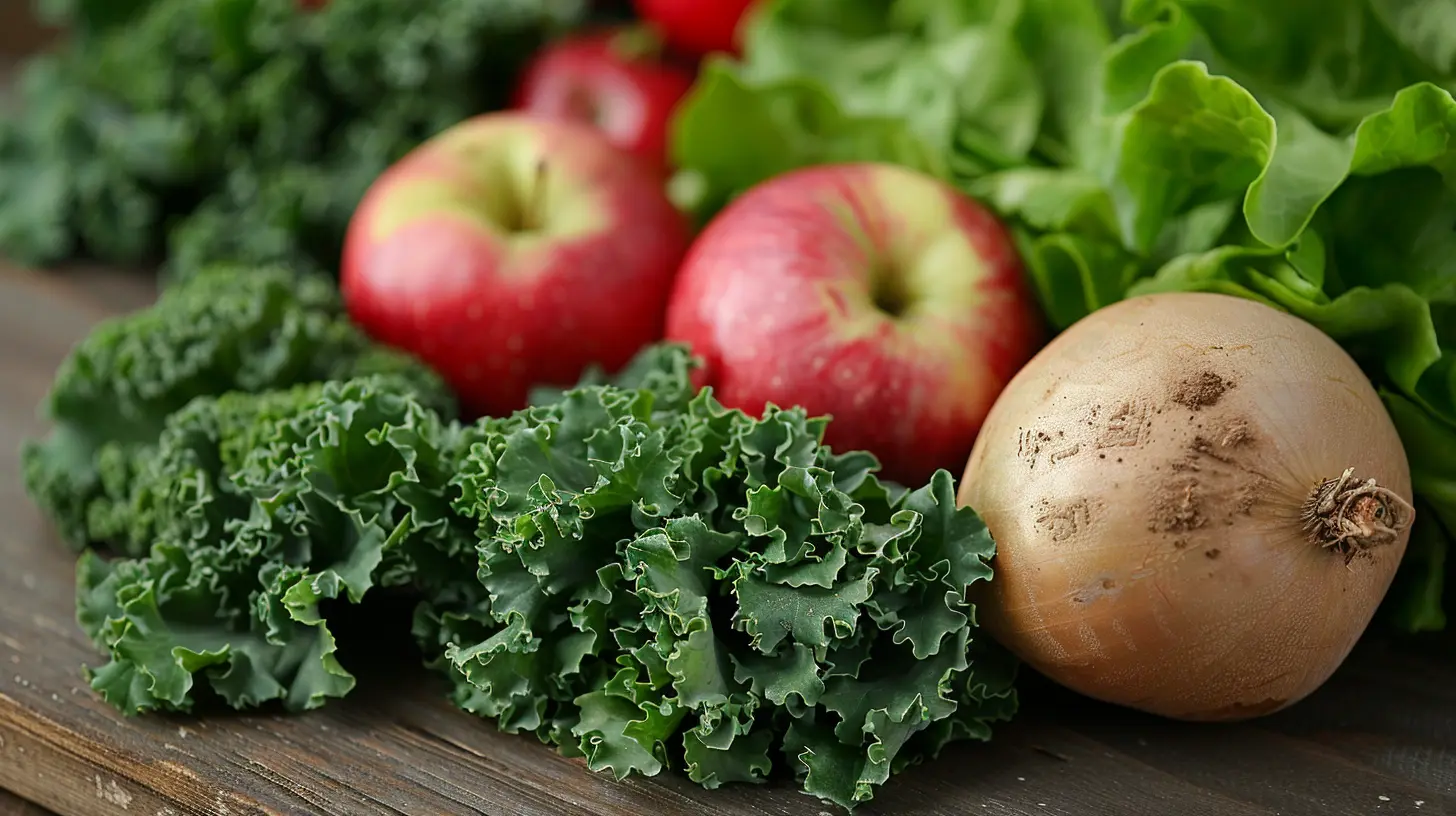18 March 2025
When it comes to eating healthy, there's a buzzword you can't avoid: organic. It’s plastered across food labels, highlighted in grocery store aisles, and embedded in every conversation about "clean eating." But within the organic world, there’s a split that people rarely talk about – organic whole foods and processed organic foods. If both are organic, does it even matter which you choose? Spoiler alert: it does! Let’s dive into this culinary conundrum and see which one comes out on top.
What Exactly Are Organic Whole Foods?
First, let’s decode what we mean by "organic whole foods." Whole foods are just like they sound – foods in their natural, unprocessed, and unrefined state. Think fresh apples that are still crunchy, broccoli you steam for dinner, or a bag of raw almonds in your pantry. Now, slap on the "organic" label, and you’ve got foods grown without synthetic pesticides, herbicides, or genetically modified organisms (GMOs).Organic whole foods are the holy grail of the clean eating world. Why? Because they’re as close to their natural state as they can get. It’s like getting your food straight from Mother Nature’s garden with zero middlemen. Sounds pretty ideal, right?
Okay, But What About Processed Organic Foods?
Here’s where the confusion sets in. Not all organic foods are whole or unprocessed. Enter processed organic foods. These are items that started as organic ingredients but have been tinkered with before making their way to your table. Think organic cereal, organic granola bars, organic frozen meals, or even organic chips.Sure, these foods are still made with organic ingredients, but they’ve been altered – whether it’s through grinding, cooking, mixing, or packaging. They might also have added sugar, salt, or other (still organic) ingredients to enhance their taste, shelf-life, or convenience.
The "Organic" Common Ground Between the Two
Before we dive into the nitty-gritty of which is better, let’s acknowledge the similarities. Both organic whole foods and processed organic foods are generally better for you (and the environment) than their conventional, non-organic counterparts. Here’s why the organic label is a win-win:1. No Harmful Chemicals: Organic foods are grown without synthetic pesticides, fertilizers, or GMOs. That’s a huge thumbs-up for both your body and the planet.
2. Rich Nutritional Value: studies suggest that organic produce often packs more nutrients, especially antioxidants.
3. Environmental Impact: Organic farming practices are designed to be eco-friendly, supporting biodiversity and soil health.
So, whether you’re munching on raw, organic carrots or digging into an organic veggie lasagna, you’re already making a smarter choice. But that still begs the question – is one better than the other?
Breaking It Down: Organic Whole Foods vs. Processed Organic
To answer this, let’s compare these two categories across some key dimensions. Grab your metaphorical magnifying glass!1. Nutritional Value
Organic whole foods win this round, hands down. Why? Because they retain all their natural nutrients. Nothing is taken away, and nothing weird is added. For example, a whole organic apple gives you fiber, vitamins, and antioxidants in their pure form. But turn that apple into organic applesauce, and you might lose some of that fiber while gaining added sugars (even if they are organic).Processed organic foods, while still healthier than regular processed foods, often lose some nutrients during manufacturing and may include added ingredients. Organic or not, extra sugar or sodium isn’t doing your health any favors.
> Think of it this way: Organic whole foods are like a fresh bouquet of flowers, untouched and vibrant. Processed organic foods? More like a bouquet that’s been reshuffled, clipped, and sprayed to preserve it. Still pretty, but definitely not the same.
2. Ingredients Transparency
Organic whole foods are easy to understand. An organic potato is…well, a potato. There’s no ingredient list to decipher.Processed organic foods, on the other hand, often come with a label that reads like a small novel. Even if every ingredient is organic, it can still be hard to figure out exactly what you’re eating. If you can’t pronounce half the ingredients in your organic snack bar, it’s time to rethink your choices.
3. Convenience
This is where processed organic foods shine. Let’s be real – not everyone has the time to chop, dice, and cook every meal from scratch. Processed organic products like organic frozen dinners or snack bars are lifesavers when you’re in a pinch. They’re faster, easier, and save you from resorting to fast food.But here’s the catch: convenience comes with a compromise. The nutritional value may not be as high, and added ingredients can sneak in. Think of processed organic foods as a useful back-up plan, not your daily go-to.
4. Cost
Let’s talk dollars and cents. Organic whole foods are often less expensive than their processed organic counterparts. Why? Fewer steps in manufacturing mean less cost passed on to you. Buying a bag of organic oats to make your own oatmeal is way cheaper than buying pre-packaged organic oatmeal cups.Processed organic foods, while convenient, are marked up for the extra processing, packaging, and marketing that comes with them. If you’re on a budget, sticking to organic whole foods is your best bet.
5. Health Impact
Here’s a no-brainer: The fewer steps your food goes through from farm to fork, the healthier it is. Organic whole foods give you all the nutrients without any of the junk. They help you feel full longer, provide sustained energy, and support overall health.Processed organic foods, despite being organic, can still contain sneaky sugars, fats, and salts that you don’t need. An organic cookie is still…a cookie. It’s better than a non-organic one, sure, but it won’t do your waistline any favors if you’re eating it every day.
So, Which Is Really Better?
If you haven’t guessed by now, organic whole foods are the gold standard. They’re cleaner, healthier, and more in line with what our bodies need to thrive. That said, processed organic foods aren’t the villain here. They can still be a smarter alternative to conventional processed options – as long as you’re reading the label and eating them in moderation.Think of it like this: Organic whole foods are the star of the show, while processed organic foods are the understudies. They can step in if needed, but they’re no substitute for the real thing.
How to Make Smarter Choices
Here are some quick tips to help you navigate the organic food aisle like a pro:1. Go for whole first: Load your cart with fresh produce, whole grains, nuts, and seeds.
2. Check the label: For processed organic foods, look out for added sugars, oils, or preservatives.
3. Cook more often: Preparing meals at home using organic whole ingredients is both healthier and more cost-effective.
4. Use processed organic sparingly: Save them for busy days when you really need a shortcut.
The Bottom Line
When it comes to organic whole foods vs. processed organic, the former is the clear winner. It’s like comparing homemade meals to takeout – one nourishes your body and soul, while the other is just an occasional convenience. By choosing more organic whole foods, you’re giving your body the fuel it truly craves.Still, life happens, and sometimes we need a little help from processed options. The key is balance. Eat more foods that look like they came straight from the earth, and use processed organic as your back-up plan. Your body (and your taste buds) will thank you.





Scarlett McNulty
Choosing whole foods is a powerful step toward vibrant health! Embrace nature's bounty and nourish your body with wholesome ingredients. Every healthy choice counts on your wellness journey!
April 2, 2025 at 3:00 AM